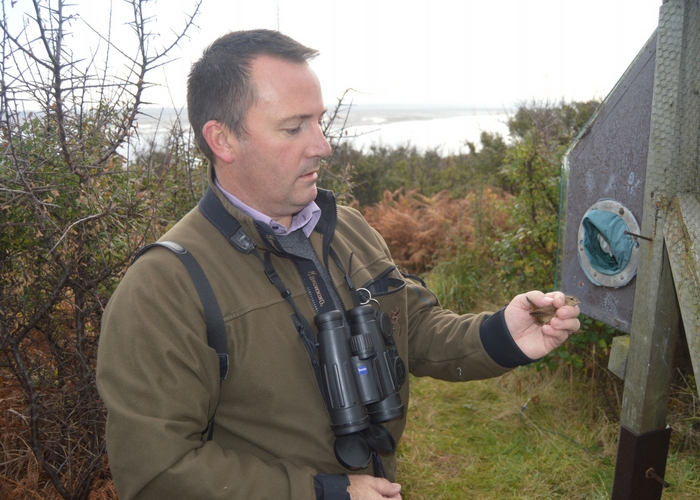Being a Site of Special Scientific Interest, the three tidal islands contained within the Dee Estuary that make up Hilbre Island, act as home to resident and migratory birds and a number of other wildlife species.
Helping maintain the birds on the Island is the Hilbre Island Bird Observatory, which is made up of approximately 150 members.
There are three ‘traps’ on the island, which are used to catch different species of birds and ring them. One of the traps on the island is named after Liverpool FC’s famous Spion Kop, as it is the biggest trap on the island.

Bird ringing has a specific process, which requires at least a year’s training before you can apply for a full permit.
All contribution to the conservation dataset is vital for the British Trust for Ornithology. By fitting a small, uniquely numbered, metal ring onto the legs of the bird, they can be easily identified which helps to gain an understanding of changes in the survival and movements of bird populations.
Hilbre, is also currently home to a large flock of Brent Geese, which could potentially rise up to 340 and they will be living on British turf until around March.
Brent Geese are a long-distance migratory goose, which breeds in eastern High Arctic Canada and migrates in stages through Greenland, Iceland and winters in North-West Europe.
The bird mainly feeds off the inter-tidal eel-grass and other coastal vegetation including, green algae.
Although it’s most commonly known that geese fly in a V formation, Brent Geese fly in a huge straight line and they nest on flat tundra surfaces, near ponds, lakes and on islands.
Migratory Cycle
October – March: Ireland (Western Britain, northern France and Jersey)
April – May: Western Iceland
June – August: Arctic Canada
September: Western Iceland
For regular bird reports and rare spotting’s, visit: http://hilbrebirdobs.blogspot.co.uk/